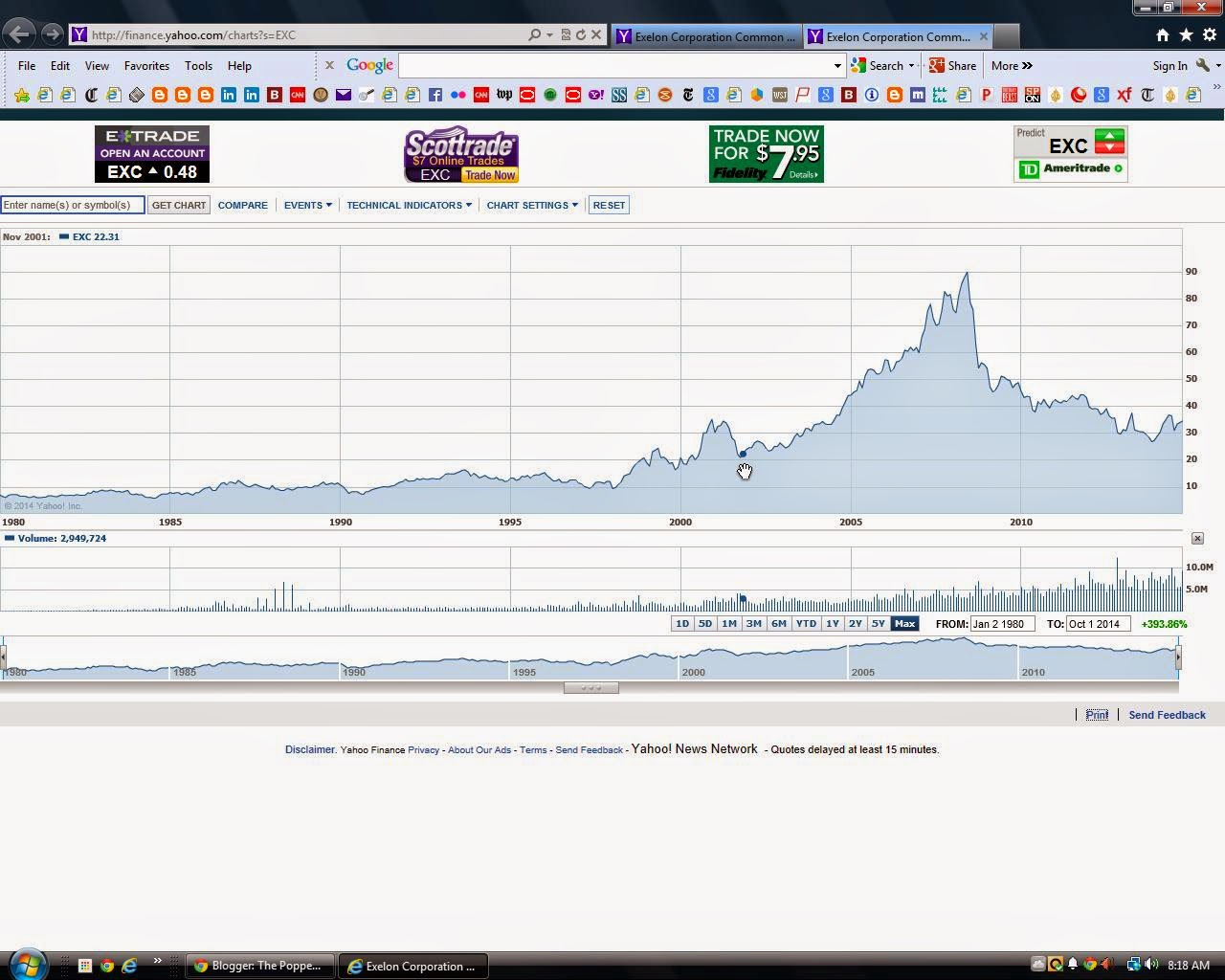Look at how well Dominion did in the 2009 financial crisis and the stock price has been screaming up until recently.
Basically Exelon collapsed in 2009 and has been stagnant since 2009 or in decline.
Study: Reactors at Risk of Closure Add $3.8 Billion to Illinois Economy
Thu,
Oct 2 2014 10:26 AM
A study by the Nuclear Energy Institute has tallied up the economic
impact of Exelon's nuclear plants in Illinois as the utility threatens to close
several unprofitable reactors unless changes are made to the state's energy
market.The analysis (.pdf) released Wednesday reported that Exelon's 11 reactors in the state provide nearly half of Illinois' power and have operated with a capacity factor of 96 percent over the last decade. They employ about 5,900 people and generate $8.9 billion in annual economic output, defined as the value of their power production, as well as secondary economic effects that include the way employees' spending influences the demand for goods in their local communities. Full-time employees at Exelon's nuclear facilities in Illinois earned an average of $105,300 in 2012. Additionally, Exelon's nuclear facilities provide $290 million in revenue to state and local governments and nearly $1.1 billion to the federal government, which includes taxes derived from economic activity attributable to the plants.
Exelon has told state legislators that it will likely close five reactors at the Byron, Quad Cities and Clinton plants if market conditions affected by low natural gas costs and periods of excess wind generation don't improve. The study found that doing so would reduce the fleet's direct economic output in 2016 by $2.4 billion and its secondary economic impact by a further $1.2 billion. The study did not address how much of that economic activity might be made up by non-nuclear power plants replacing the lost generation capacity in the future. Regardless, the closing of reactors elsewhere in the country has shown that the impact to the communities hosting the plants would be substantial.
Exelon has not publicly advocated for specific legislative measures to support the plants, but its leaders have suggested that the reactors' revenue should reflect their positive effect on grid stability and in helping the state meet its carbon-emissions reduction goals. The utility has pushed back when it plans to make
The Impact of Exelon’s Nuclear Fleet on the Illinois Economy
An Analysis by the Nuclear Energy Institute
October 2014
If Byron, Clinton and Quad Cities close prematurely this analysis found that the initial output losses to Illinois would be $3.6 billion. The output losses would increase annually and, by 2030, reach $4.8 billion. The number of direct and secondary jobs lost peaks in the fifth year after the plants close: 13,300 jobs lost in Illinois. Losses would reverberate for decades after the premature plant closures, and host communities may never fully recover.


No comments:
Post a Comment